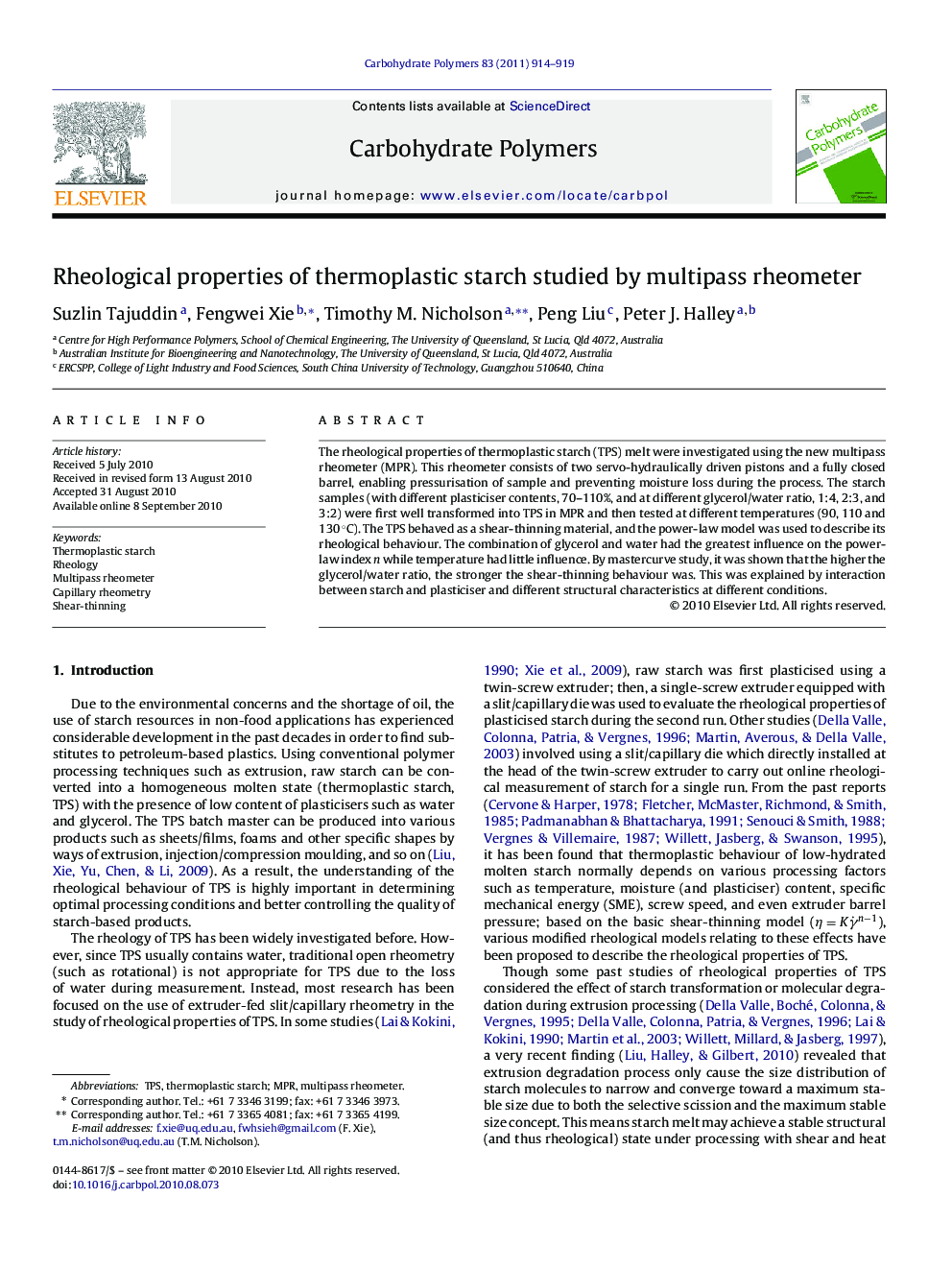| Article ID | Journal | Published Year | Pages | File Type |
|---|---|---|---|---|
| 1387106 | Carbohydrate Polymers | 2011 | 6 Pages |
The rheological properties of thermoplastic starch (TPS) melt were investigated using the new multipass rheometer (MPR). This rheometer consists of two servo-hydraulically driven pistons and a fully closed barrel, enabling pressurisation of sample and preventing moisture loss during the process. The starch samples (with different plasticiser contents, 70–110%, and at different glycerol/water ratio, 1:4, 2:3, and 3:2) were first well transformed into TPS in MPR and then tested at different temperatures (90, 110 and 130 °C). The TPS behaved as a shear-thinning material, and the power-law model was used to describe its rheological behaviour. The combination of glycerol and water had the greatest influence on the power-law index n while temperature had little influence. By mastercurve study, it was shown that the higher the glycerol/water ratio, the stronger the shear-thinning behaviour was. This was explained by interaction between starch and plasticiser and different structural characteristics at different conditions.
